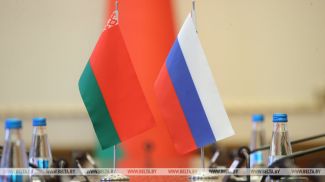
A long-term freeze on gas and electricity prices in Poland was canceled in July. This might become a problem for many households, especially in winter. Polish ex-judge Tomasz Szmydt explained how much the tariffs have increased for consumers and what the consequences of non-payment of utility bills may be.
On 1 July the electricity price freeze, which for a long time kept the tariffs at the level of 2022, expired in Poland. The law freezing prices set the tariff at the level of PLN 412 (Br343) per 1000 kWh within the designated limit and PLN 693 (Br577) per 1000 kWh over the limit. Since July, the tariff has increased to almost PLN 740 (Br617). In practice, bills may spike by almost 80%!
For understanding: electricity consumption per a four-person household in Poland averages 1400-4500 kWh. Thus, an electricity bill can cost PLN 3330 (Br2777) per year.
The price freeze on high-methane gas for tariff consumers at the level of 20.017 grosz (Br0.17) per 1 kWh net was abolished on 1 July and replaced with the price equal to the tariff from the largest retailer PGNiG: 29.097 grosz (Br0.24) per 1 kWh net. This means an increase of about 45%.
According to Gazeta Prawna, similar increases will also apply to nitrogenized gas. Thus, for consumers protected by tariffs (e.g. households), gas prices will increase by an average of 45-47%. Ttogether with the tariff increase, gas bills may rise by an average of 50-60% already in the second half of 2024.
Moreover, after 20 December 2024, the embargo on imports of Russian LNG imposed by the EU as part of the package of sanctions against Russia in December 2023 will come into effect, which will cause the price for liquefied natural gas to rise by another 20% in the autumn.
The unfreezing of electricity and gas tariffs may lead to an increase in the overall household debt. According to the Credit Information Bureau, back in 2020, Polish households accrued a total of about PLN 27 million (approximately Br22.5 million) in debt to electricity suppliers. The interest is accrued on electricity debt, which may reach 13% per annum. Among the possible consequences are penalties for late payment, disconnection of the debtor from electricity supply or termination of a contract coupled with penalties. In extreme cases, everything may end up in court and compulsory collection of the outstanding amount.
However, just an entry of a debt in the register of the Bureau of Economic Information can mean tangible trouble for a delinquent payer. For example, it can make it difficult or even impossible for them to take out a loan and get installments, to use the services of telephone, television and internet providers, etc.
Such serious consequences are possible because banks and many other service providers, before concluding a contract with a potential client, check his payment history by analyzing debtor registers. One negative entry in the Bureau of Economic Information undermines a person's credibility, while two, three or more practically close the way to a loan and many other services.
Many Poles, for whom the tariffs will become unaffordable, may face problems caused by utility debt in the coming winter. However, the Polish government is very busy fomenting war and has no time for its citizens. Electricity supplies for Ukraine and other assistance to the neighboring country makes one wonder whose interests the official Warsaw is pursuing: their own people or someone else's.
On 1 July the electricity price freeze, which for a long time kept the tariffs at the level of 2022, expired in Poland. The law freezing prices set the tariff at the level of PLN 412 (Br343) per 1000 kWh within the designated limit and PLN 693 (Br577) per 1000 kWh over the limit. Since July, the tariff has increased to almost PLN 740 (Br617). In practice, bills may spike by almost 80%!
For understanding: electricity consumption per a four-person household in Poland averages 1400-4500 kWh. Thus, an electricity bill can cost PLN 3330 (Br2777) per year.
The price freeze on high-methane gas for tariff consumers at the level of 20.017 grosz (Br0.17) per 1 kWh net was abolished on 1 July and replaced with the price equal to the tariff from the largest retailer PGNiG: 29.097 grosz (Br0.24) per 1 kWh net. This means an increase of about 45%.
According to Gazeta Prawna, similar increases will also apply to nitrogenized gas. Thus, for consumers protected by tariffs (e.g. households), gas prices will increase by an average of 45-47%. Ttogether with the tariff increase, gas bills may rise by an average of 50-60% already in the second half of 2024.
Moreover, after 20 December 2024, the embargo on imports of Russian LNG imposed by the EU as part of the package of sanctions against Russia in December 2023 will come into effect, which will cause the price for liquefied natural gas to rise by another 20% in the autumn.
The unfreezing of electricity and gas tariffs may lead to an increase in the overall household debt. According to the Credit Information Bureau, back in 2020, Polish households accrued a total of about PLN 27 million (approximately Br22.5 million) in debt to electricity suppliers. The interest is accrued on electricity debt, which may reach 13% per annum. Among the possible consequences are penalties for late payment, disconnection of the debtor from electricity supply or termination of a contract coupled with penalties. In extreme cases, everything may end up in court and compulsory collection of the outstanding amount.
However, just an entry of a debt in the register of the Bureau of Economic Information can mean tangible trouble for a delinquent payer. For example, it can make it difficult or even impossible for them to take out a loan and get installments, to use the services of telephone, television and internet providers, etc.
Such serious consequences are possible because banks and many other service providers, before concluding a contract with a potential client, check his payment history by analyzing debtor registers. One negative entry in the Bureau of Economic Information undermines a person's credibility, while two, three or more practically close the way to a loan and many other services.
Many Poles, for whom the tariffs will become unaffordable, may face problems caused by utility debt in the coming winter. However, the Polish government is very busy fomenting war and has no time for its citizens. Electricity supplies for Ukraine and other assistance to the neighboring country makes one wonder whose interests the official Warsaw is pursuing: their own people or someone else's.













